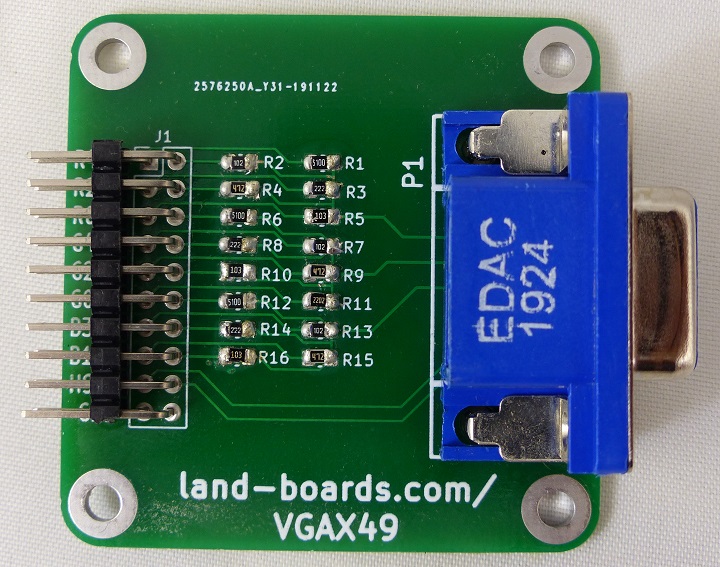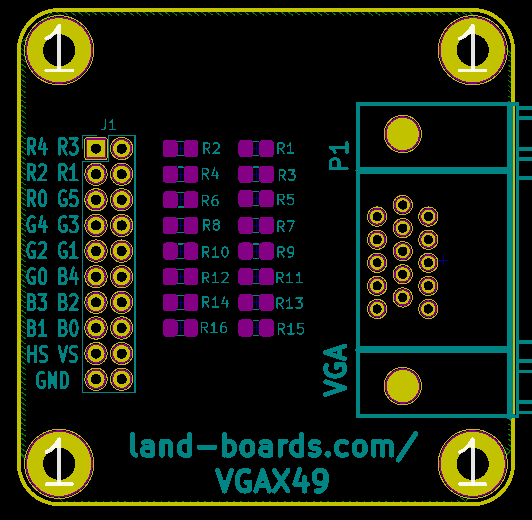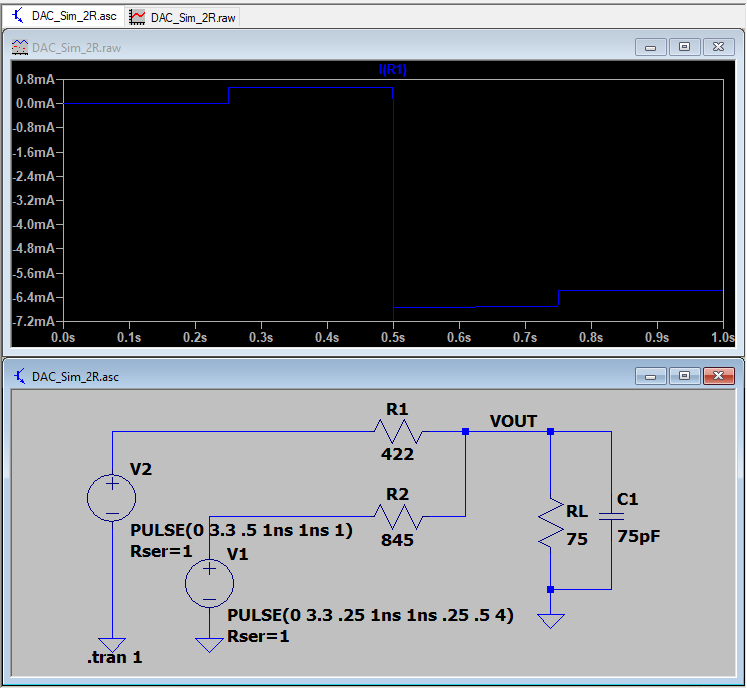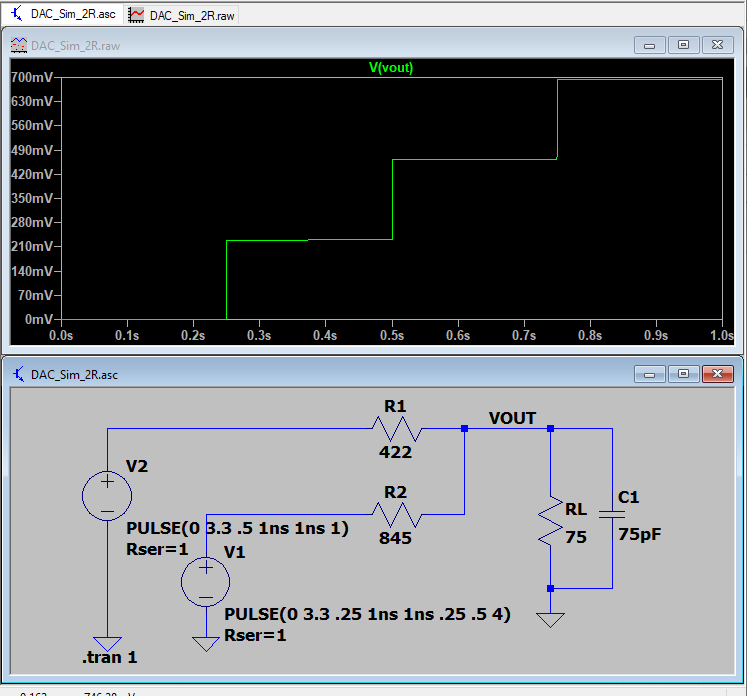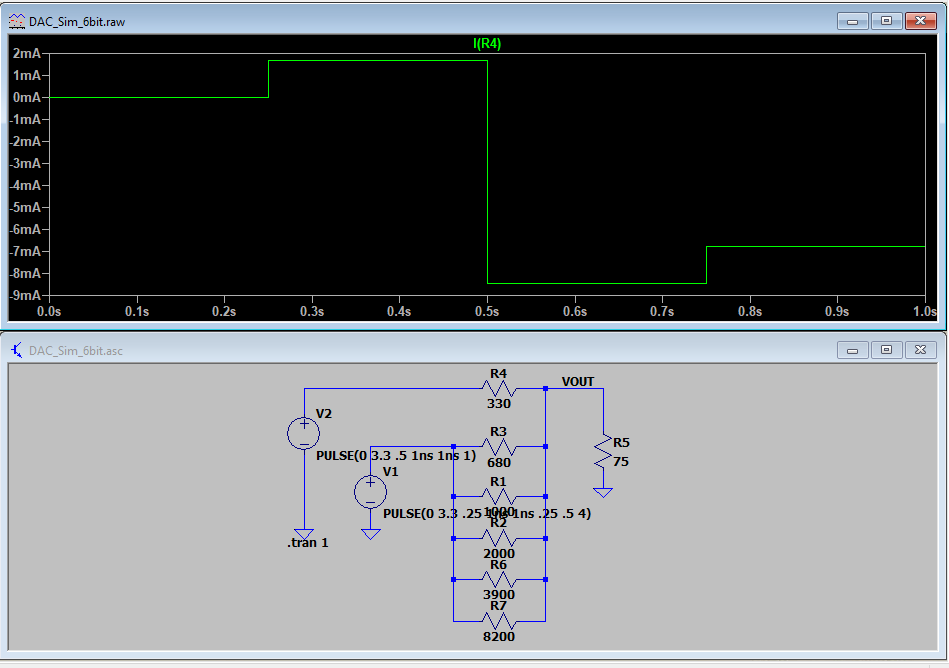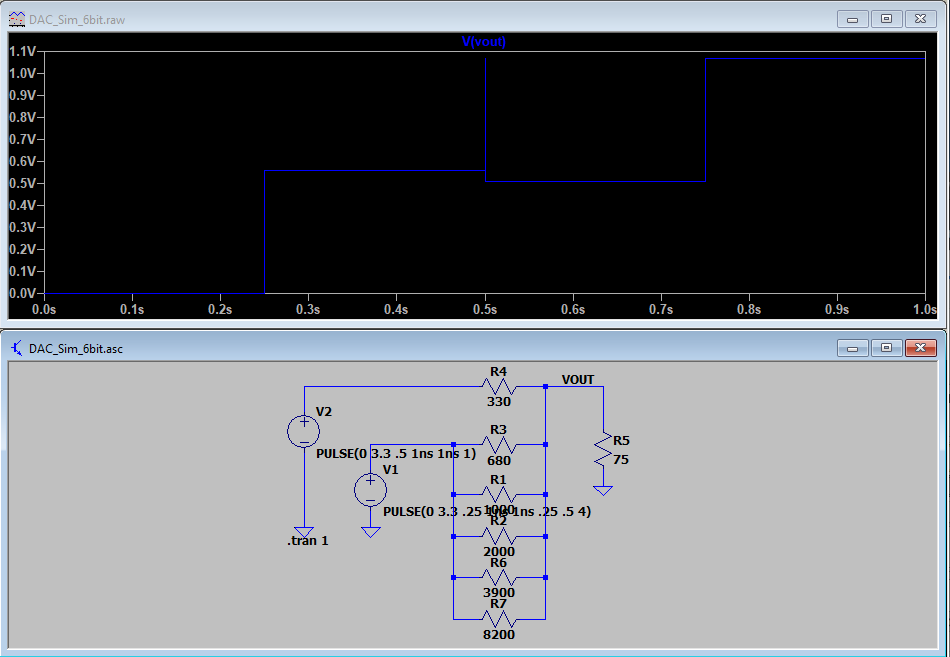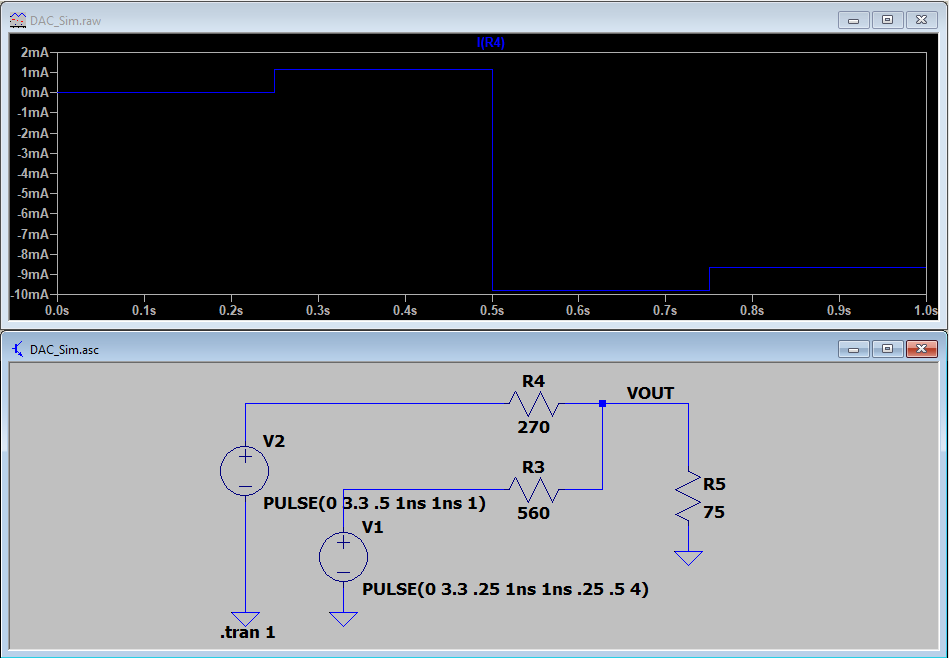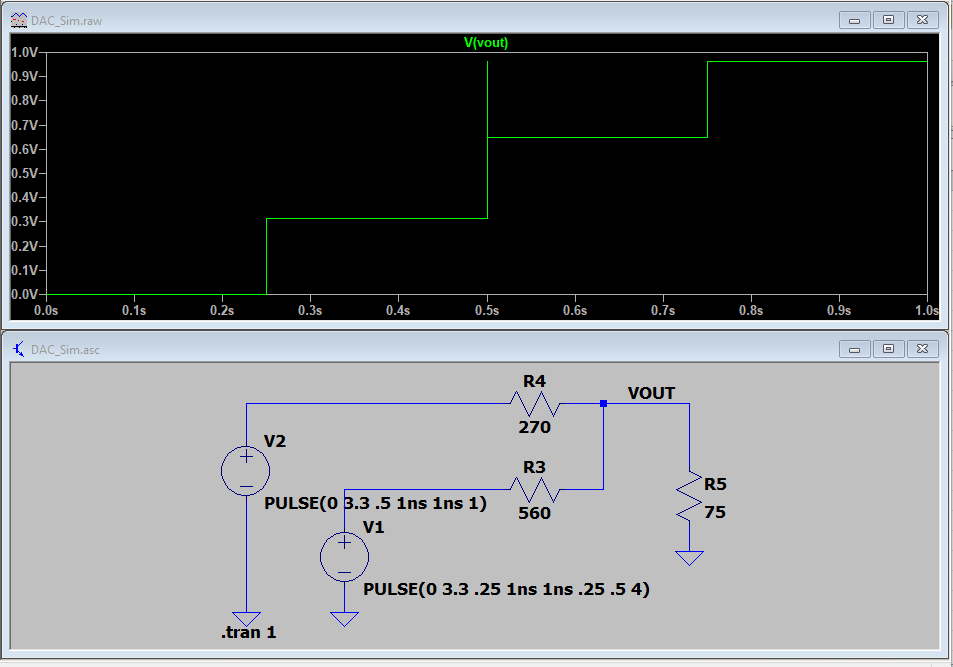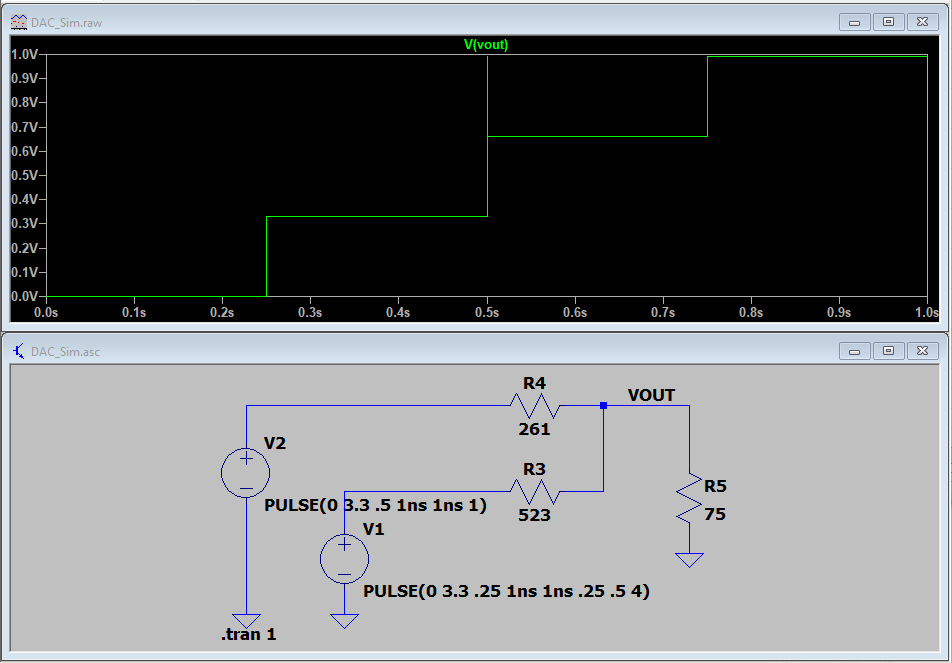Difference between revisions of "VGAX49"
Jump to navigation
Jump to search
Blwikiadmin (talk | contribs) |
Blwikiadmin (talk | contribs) |
||
| Line 45: | Line 45: | ||
* Next standard value from 330 ohms is 680 ohms | * Next standard value from 330 ohms is 680 ohms | ||
** Voltage is 0.83V - better brightness | ** Voltage is 0.83V - better brightness | ||
| + | * Ideal resistor values (1%) are [https://www.mouser.com/ProductDetail/Yageo/RC0805FR-07348RL?qs=sGAEpiMZZMu61qfTUdNhG5eFuApKbqVdp8WUAQVCzWo%3D 348] ohms and [https://www.mouser.com/ProductDetail/Yageo/RC0805FR-07698RL?qs=sGAEpiMZZMu61qfTUdNhG4JucpvLNRyOROSAND4sApc%3D 698] ohms for 8 mA drive | ||
| + | ** | ||
[[File:VGA_Sim_2R_Current.PNG]] | [[File:VGA_Sim_2R_Current.PNG]] | ||
Revision as of 20:27, 13 February 2020
Contents
Features
- Digital VGA adapter
- 16-bit digital video
- 5:6:5 (R:G:B) mapping (maximum)
- 2:2:2 (R:G:B) mapping (option)
- Uses summing resistors
- DB-15F connector
- 49x49mm ODAS form factor
- Mounting holes
Connectors
J1 - Digital Connections
P1 - VGA connector
Simulation
- Each color is independently driven and can be considered individually
- Critical design criteria is output voltage and current capability of the driving part
- Use common value, 5% resistors
- Each resistor is about 2X the value of the previous resistor
- 1V is drive level for VGA specification
- VGA presents a 75 Ohm load
- 1V at 75 Ohms is 13.3 mA
- Series resistors present a voltage divider between the resistors on the card and the VGA load
- The resistor with the smallest resistance value has larger current from the source device pin
- Current switches from source to sink depending on the voltages on the other resistors
- Each resistor is 2X the value of the previous resistor
- Too much effort is put into using precision resistors - the human eye is not that picky
2:2:2 Resistor Simulation
- Assumptions
- 3.3V Drive out of FPGA
- 8 mA max drive current (typical FPGA drive current)
- Using common value, 5% resistors
- 330 Ohm series resistor into a 75 Ohm load is 8.15 mA (close enough to max of FPGA)
- Voltage with 330/75 ohm voltage divider is 0.61V - not full brightness
- Next standard value from 330 ohms is 680 ohms
- Voltage is 0.83V - better brightness
- Ideal resistor values (1%) are 348 ohms and 698 ohms for 8 mA drive
5:6:5 Resistor Simulation
- Assumptions
- 3.3V Drive out of FPGA
- 8 mA max drive current (typical FPGA drive current)
- Using common value, 5% resistors
- 330 Ohm series resistor into a 75 Ohm load is 8.15 mA (close enough to max of FPGA)
- Voltage with 330/75 ohm voltage divider is 0.61V - not full brightness
- Next standard value from 330 ohms is 680 ohms
- Voltage is 0.83V - better brightness
- Voltage with all 6 resistors (Green case) is 1.07V (full brightness)
- Simulation uses the same 4 value steps (real case would have 2^5 or 2^6 steps)
ESP32 Drive
- The ESP32 drive current is significantly more than an FPGA
- 40 mA
- More than enough to drive to 1V (saturation level on VGA).
- 1V at 75 Ohms is 13.3 mA
- 2:2:2 270/470 Ohm simulation
- -10 mA (max)
- 0.96V (max)
Ideal Drive 2:2:2 Case
- Ideal case drive current
- 1V into 75 Ohms = 13.33 mA
- 3.3V driver which can drive more than 10 mA
- 1% resistors
- Get closest values
- R-2R values
- 2/3 of the drive comes from the smaller resistor
- Ideal resistor values are 261, 523 ohms
- 0V, 0.331V, 0.661V, 0.992 V
